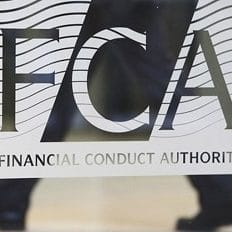
FCA: Consumer duty warning
Claims management companies (CMCs) have been warned to stop using their Financial Conduct Authority (FCA) authorisation to lend credibility to their unregulated activities.
The regulator has urged them to be clear with consumers about which of their products and services are regulated and which are not.
The FCA regulates six areas of CMC activity: financial services and products, personal injury, housing disrepair, specified benefit, criminal injury and employment.
A year ago, the FCA told CMCs that it planned to carry out “proactive work” to identify CMCs conducting both regulated and unregulated services and “use our powers to remove them”, minimising the potential for unregulated businesses to benefit from the ‘halo’ effect of FCA authorisation.
It followed this with substantive information requests – and in some cases visits – to 26 CMCs offering unregulated claims services for matters such as tax, timeshare, diesel emissions and flight delay claims. This sample included all the FCA-authorised CMCs that were submitting tax claims.
The FCA found that some of the CMCs had undertaken very little or no regulated claims management activity. As a result, some had applied to cancel their FCA permissions, and around 70% stopped unregulated claims activity.
Other concerns were non-compliant financial promotions, inadequate systems and controls to differentiate between regulated and unregulated claims activity, and significantly higher fees for unregulated claims activity.
“Although we don’t have regulatory oversight of these activities, we consider that firms will want to satisfy themselves on whether this is appropriate,” the FCA said.
It said firms must regularly review their regulatory permissions to ensure these are up-to-date “and apply to us to remove them if they are not needed”. The FCA has the power to cancel a firm’s permission if it has not carried out regulated activity for at least a year.
FCA rules say that CMCs must not indicate or imply that they are authorised by the FCA for business they are not authorised for.
The latest advice said: “Where CMCs offer unregulated claims services, we expect them to be clear with consumers about which of their products and services are regulated and which are not. Under CMCOB 2.1.1R, CMCs must act honestly, fairly and professionally in accordance with the best interests of its customer.”
The consumer duty, which the FCA introduced last July, also came into play here – it requires firms to act in good faith, and to give consumers the right information to make properly informed decisions.
The FCA said: “CMCs should pay particular attention to how clear they have made it to consumers that the service they are agreeing to use is not regulated.
“This should include reviewing all communications with consumers, including financial promotions. CMCs should also review the terms and conditions of their unregulated claims services to ensure contractual documentation is clear and fair.”
Further, where fees for unregulated claims exceeded those charged for regulated claims services, “we strongly urge CMCs to keep in mind the spirit of the consumer duty, and whether the services they are providing represent fair value for the consumer”.













Leave a Comment